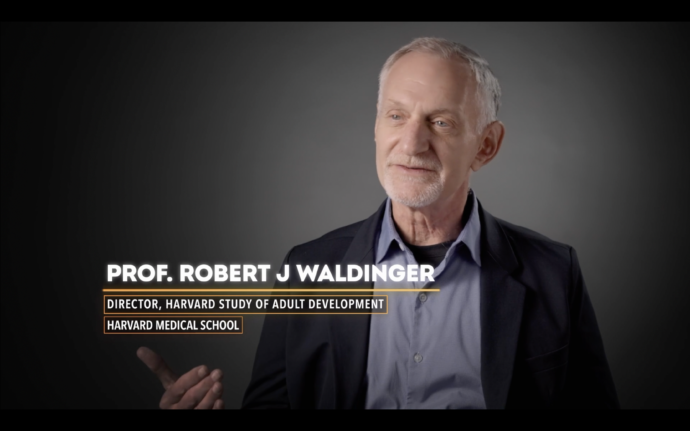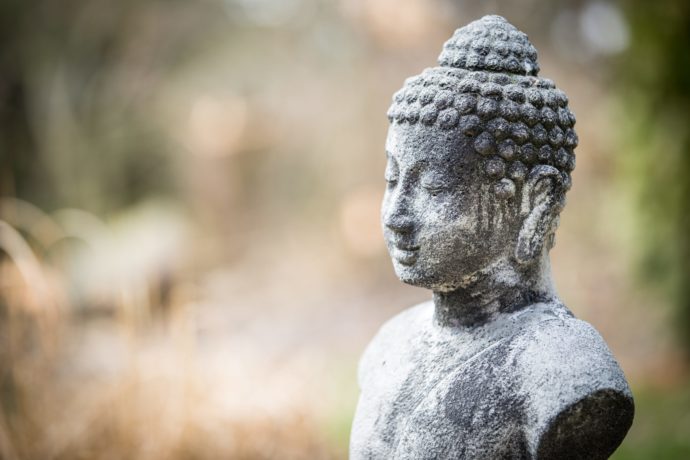
Social distancing is challenging all of our relationships, our health and our happiness in ways we haven’t even been able to fully comprehend yet. How can we be better at knowing how to invest in our wellbeing and relationships in this time of COVID?
Laurie Santos – a professor of psychology at Yale University and the host of the popular “Happiness Lab” podcast – sat down in a kitchen-table Zoom conversation to discuss what science teaches us about happiness. Her online class “Psychology and the Good Life” has grown by almost 2 million in the last couple of weeks on Coursera, because so many people are anxious and want evidence-based tools to support their mental health.
Happiness Isn’t Circumstances
It turns out that humans are bad at knowing what makes us happy. Our minds tell us that the path to happiness is based on circumstances – money, jobs, relationship status. This is not new. Young Zen monks in eighth-century China had to be cautioned not to look to someone or something outside themselves to make them happy. Thousands of years later we’re still there, our minds conditioning us to think some quick fix is out there.
Happiness is Meaningful Relationships
Research data, however, tell us that many of us spend our energy working toward the wrong things. Happiness comes from having rich social connections. What’s ironic is that in our quest for the perfect life circumstances (job, income, house) we often sacrifice our social relationships.
This experience dealing with COVID-19 has shown us that even weak ties – the people you connect with casually like the mailman – have always been a potential source of happiness and are now more important than ever. Social distancing is teaching us that people crave social connection more than we realized, and that we need to put more effort into making and maintaining relationships.
I really hope that this whole crisis causes us to realize how much stuff we were taking for granted,” Santos said. “I hope when we get on the other side we have incredible gratitude for stuff we were taking for granted before.
Behavior Re-wirements
Santos’ classes include behavior “re-wirements,” that is, requirements that students perform actions they don’t normally do, like talking to a stranger on the bus or buying someone coffee. Students discover that these actions bring them joy. But like those New Year’s resolutions that we soon give up, it’s hard to sustain new behaviors that lead to happiness.
Santos notes two keys to keeping those behaviors going:
- Finding a way to turn a behavior into a habit, and/or
- Get friends to support you in making behavior changes stick.
For example, friends can form a running group and in this way encourage each other to exercise regularly.
Laurie Santos offers some tools for improving happiness through social connection:
- How should we use our free time? Invest time in relationships with family and friends instead of work. Reach out to old friends or others we’ve lost touch with prioritize spending free time strengthening those connections.
- Technology and social media – can connect us to each other but can also create stress and overload us. Be mindful of what feels good and what doesn’t – stick with the “nutritious” parts of your on-line connections and let the rest go.
- Relationships require startup and maintenance – Perfectly good relationships can wither on the vine without investments over time. Put down the phone and don’t let it steal attention away from who is in front of you.
- Masks conceal our smiles and expressions – Get creative about how to share emotions during this time of social distancing.
- Helping others – is a powerful way to feel more socially connected and improve well-being. Using discretionary time to give to others is an investment in happiness.
- Nutritious leisure activities – should be more challenging than simply Netflix. Be active with leisure time – learn a new language or instrument; bake bread; play games with family or housemates.
- Everybody loses track of what they need at times – Having other people to remind each other what to do for our wellbeing is really important.

Transform Your Life and Work
Want to learn more about how Lifespan Research Foundation can help you? Register for our Road Maps program today.


